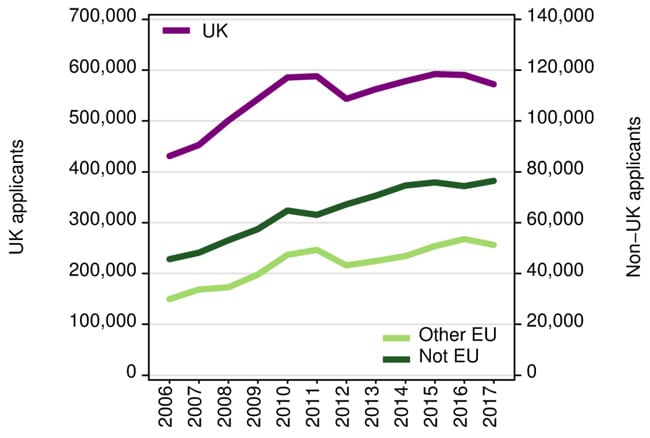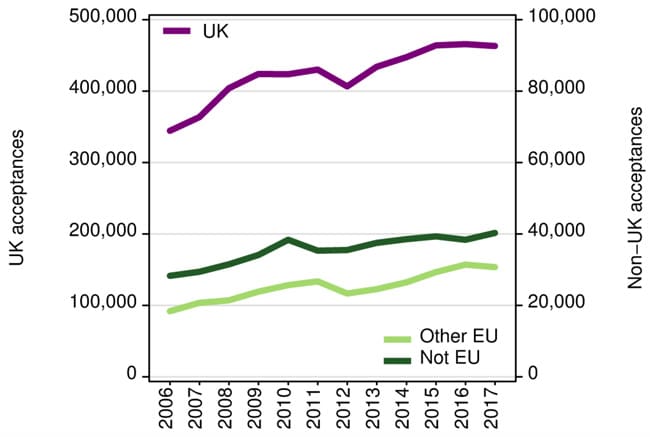Contrasting EU and non-EU trends for British higher education
The global strength of the British education brand is showing this year with record-high application volumes and acceptances for non-European Union students in 2017.
However, the latest data release from the Universities and Colleges Admissions Service (UCAS) paints a mixed picture in also highlighting a drop in EU and domestic enrolments in British higher education.
UCAS is starting to roll out its full-year data for 2017 and the initial release, published earlier this week, will rekindle concerns around the impact of the ongoing Brexit process.
In terms of application volumes for the year, UCAS reports a 3.1% decline in applicants from the UK (this works out to 18,220 fewer applications compared to 2016). Of particular note to international educators, applicants from the EU also declined by 4.4% year-over-year (the equivalent of 2,375 applications). This, UCAS points out, eroded much of the growth in EU application volumes recorded in 2016. Perhaps more notably, it reverses a growth trend that has persisted since 2012, which was the last year in which EU numbers fell off. “Between 2012 and 2016, the number of EU applicants increased by between 4% and 8% each year,” says UCAS. “Had that trend continued into 2017, applicants from the EU would have been around 10% higher than observed.”
But as the following chart illustrates, applications from outside the EU increased by 2.8%, or 2,090 applicants, in 2017. This marks a new record-high for application volumes for non-EU students, and reverses a dip in volume from this important group in 2016.

Acceptances on trend
The number of acceptances granted by British universities followed a similar pattern in 2017: UK and EU numbers were down against an increase in acceptances for non-EU applicants.
The number of acceptances granted to British prospects fell by .5% this year, and by 2.1% for EU students from outside the UK. As with the trend for application volumes, this decline in EU acceptances reversed a four-year growth trend dating back to 2012.
Also following the non-EU trend line, acceptances to prospects from outside the EU rose by 5% (or roughly 2,000 students) compared to 2016. This growth effectively offsets (and then some) a 2.3% decline in non-EU acceptances in the previous year, and establishes a new record level for non-EU admissions.



















